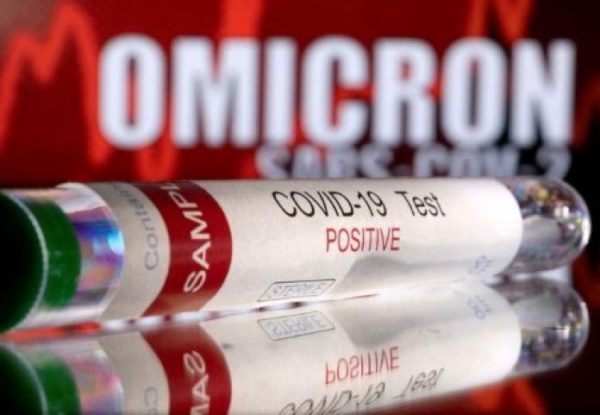

Dec 20 (Reuters) – The following is a summary of some recent studies on COVID-19. They include research that warrants further study to corroborate the findings and that has yet to be certified by peer review.
Omicron infections are no less severe based on early UK data, Infections caused by the Omicron variant of the coronavirus do not appear to be less severe than infections from Delta, according to early data from the UK.
Researchers at Imperial College London compared 11,329 people with confirmed or likely Omicron infections with nearly 200,000 people infected with other variants.
So far, according to a report issued ahead of peer review and updated on Monday, they see “no evidence of Omicron having lower severity than Delta, judged by either the proportion of people testing positive who report symptoms or by the proportion of cases seeking hospital care after infection.”
Sperm count, motility may be low for months after COVID-19
“Couples with a desire for pregnancy should be warned that sperm quality after COVID-19 infection can be suboptimal,” the researchers concluded. “The estimated recovery time is 3 months, but further follow-up studies are under way to confirm this and to determine if permanent damage occurred in a minority of men.”
Neutralizing molecule could be cheaper than antibodies
An experimental molecule that neutralizes the coronavirus in the same way antibodies do would be cheaper and easier to manufacture, researchers said.
The molecule belongs to a class of compounds known as aptamers.
Because they are made from RNA or DNA, aptamers are easier to synthesize than protein-based antibodies that can only be produced in living cells, said Julian Valero of Aarhus University in Denmark. Like antibodies, the aptamers attach themselves to protein targets – in this case, the spike protein on the virus surface – by folding into a three-dimensional conformation.
A study published in PNAS shows that in test tube experiments, the aptamer binds tightly to the coronavirus spike, preventing it from breaking into human cells. It inhibits earlier variants of the virus, including Delta, the researchers said.
They are planning tests to see whether it also recognizes and binds to Omicron.
Use of the aptamer in patients is still far off, with tests in mice only recently begun. In terms of use in humans, “we’re much closer” to being able to use the aptamer to help diagnose SARS-CoV-2 infections, said Jorgen Kjemsa, also of Aarhus University.
Experiments comparing the use of the aptamer to antibodies in widely used rapid COVID-19 tests for infection are underway, he said.
Click for a Reuters graphic on vaccines in development.
Register now for FREE unlimited access to Reuters.com
Reporting by Nancy Lapid
Editing by Bill Berkro
more recommended stories
 Fentanyl Seizures at Border Continue to Spike, Making San Diego a National Epicenter for Fentanyl Trafficking
Fentanyl Seizures at Border Continue to Spike, Making San Diego a National Epicenter for Fentanyl TraffickingFentanyl Seizures at Border Continue to.
 Utah Man Sentenced for Hate Crime Attack of Three Men
Utah Man Sentenced for Hate Crime Attack of Three MenTuesday, August 8, 2023 A.
 Green Energy Company Biden Hosted At White House Files For Bankruptcy
Green Energy Company Biden Hosted At White House Files For BankruptcyAug 7 (Reuters) – Electric-vehicle parts.
 Former ABC News Reporter Who “Debunked” Pizzagate Pleads Guilty of Possessing Child pδrn
Former ABC News Reporter Who “Debunked” Pizzagate Pleads Guilty of Possessing Child pδrnFriday, July 21, 2023 A former.
 Six Harvard Medical School and an Arkansas mortuary Charged With Trafficking In Stolen Human Remains
Six Harvard Medical School and an Arkansas mortuary Charged With Trafficking In Stolen Human RemainsSCRANTON – The United States.
 Over 300 People Facing Federal Charges For Crimes Committed During Nationwide Demonstrations
Over 300 People Facing Federal Charges For Crimes Committed During Nationwide DemonstrationsThe Department of Justice announced that.
